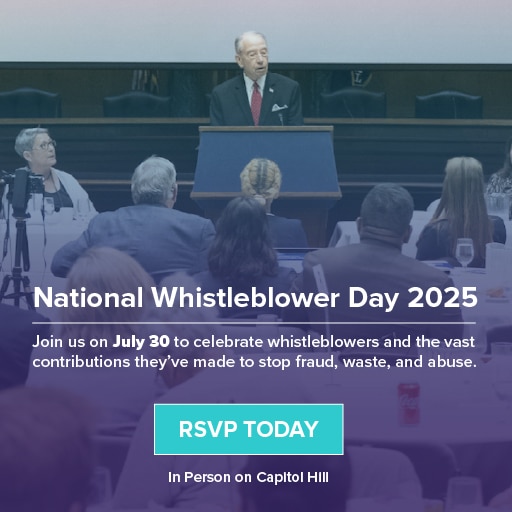 Today the Supreme Court held that workers who make oral complaints about wage and hour violations are protected from retaliation under the Fair Labor Standards Act (FLSA). The Court says that oral complaints are "filed" and that workers who make them have "filed any complaint" in the parlance of the 1938 statute. The decision reverses a narrow holding by the Seventh Circuit U.S. Court of Appeals in Chicago, and allows Kevin Kasten to go to trial against his former employer, Saint Gobain Performance Plastics Corporation. I reported here earlier about the dynamic oral argument presented by Kasten’s attorney, my friend Jim Kaster of Minneapolis, Minnesota (pictured). That blog post reviews the facts of what Kasten did to complain and how he got fired. The case is Kasten v. Saint Gobain Performance Plastics Corporation, No. 09-834 (March 22, 2011).
Today the Supreme Court held that workers who make oral complaints about wage and hour violations are protected from retaliation under the Fair Labor Standards Act (FLSA). The Court says that oral complaints are "filed" and that workers who make them have "filed any complaint" in the parlance of the 1938 statute. The decision reverses a narrow holding by the Seventh Circuit U.S. Court of Appeals in Chicago, and allows Kevin Kasten to go to trial against his former employer, Saint Gobain Performance Plastics Corporation. I reported here earlier about the dynamic oral argument presented by Kasten’s attorney, my friend Jim Kaster of Minneapolis, Minnesota (pictured). That blog post reviews the facts of what Kasten did to complain and how he got fired. The case is Kasten v. Saint Gobain Performance Plastics Corporation, No. 09-834 (March 22, 2011).
At pages 8-9 of the slip opinion, the Court initially notes that, "an interpretation that limited the provision’s coverage to written complaints would undermine the Act’s basic objectives." The Court explained that the FLSA does not rely on “continuing detailed federal supervision or inspection of payrolls,” but on “information and complaints received from employees seeking to vindicate rights claimed to have been denied.” Quoting Mitchell v. Robert DeMario Jewelry, Inc., 361 U. S. 288, 292 (1960). The FLSA’s antiretaliation provision makes this enforcement scheme effective by preventing “fear of economic retaliation” from inducing workers “quietly to accept substandard conditions.” The Mitchell case was the first one Kaster cited in his oral argument, page 3. In the majority opinion, Justice Breyer noted that in 1938 many workers were illiterate, especially the low wage workers that Congress sought to help with the FLSA. Justice Breyer (p. 9) was also mindful of the multiple effects that would arise if oral complaints had no protection:
To limit the scope of the antiretaliation provision to the filing of written complaints would also take needed flexibility from those charged with the Act’s enforcement. It could prevent Government agencies from using hotlines, interviews, and other oral methods of receiving complaints. And insofar as the antiretaliation provision covers complaints made to employers (a matter we need not decide, see infra, at 14–15), it would discourage the use of desirable informal workplace grievance procedures to secure compliance with the Act. Cf. Burlington Industries, Inc. v. Ellerth, 524 U. S. 742, 764 (1998) (reading Title VII to encourage the development of effective grievance procedures to deter misconduct); D. McPherson, C. Gates, & K.Rogers, Resolving Grievances: A Practical Approach 38–40 (1983) (describing the significant benefits of unwritten complaints).
This paragraph should be particularly helpful to advocates seeking protection for internal complaints.
The Kasten decision will also be helpful in expanding the scope of participation clause protection. This is the protection workers have when the file official complaints, provide information for official proceedings, testify as a witness, or participate in other ways. Justice Breyer’s opinion notes that
this Court has broadly interpreted the language of the NLRA’s antiretaliation provision—“ filed charges or given testimony,” 29 U. S. C.§158(a)(4)—as protecting workers who neither filed charges nor were “called formally to testify” but simply “participate[d] in a [National Labor Relations] Board investigation.” NLRB v. Scrivener, 405 U. S. 117, 123 (1972) (emphasis added).
The Court also cited Tennessee Coal, Iron & R. Co. v. Muscoda Local No. 123, 321 U. S. 590, 597 (1944) for the idea that an act’s “remedial and humanitarian . . . purpose” cautions against “narrow, grudging” interpretations of its language.
The majority opinion goes on to reference the position of federal agencies that enforce antiretaliation provisions. Both the Department of Labor (DOL) and the Equal Employment Opportunity Commission (EEOC) expressed their policy of encouraging and protecting oral complaints. Indeed, DOL accepts oral complaints through its Toll-Free Wage and Hour Help Line at 1–866–4–US–WAGE. The Court even cited DOL’s web page. "These agency views are reasonable. They are consistent with the Act," the Supreme Court says at p. 13.
This decision continues the Supreme Court’s recent string of holdings in favor of workers challenging retaliation. Just this year, the Court recognized protection for a whistleblower’s family members who engaged in no protected activity. In three earlier cases, the Supreme Court held that workers were protection from retaliation for helping to enforce laws that had no antiretaliation provision at all. Jackson v. Birmingham Board of Education, 544 U.S. 167 (2005) (Title IX); CBOCS West, Inc. v. Humphries, 553 U.S. 442, 128 S. Ct. 1951 (2008) (42 U.S.C. § 1981); Gomez-Perez v. Potter, 553 U.S. 474 (2008) (ADEA). It should not be a stretch, then, for the Court to find that workers are protected from retaliation under laws that prohibit such retaliation, even if the employer could argue that the literal wording might not cover them. It is my hope that the courts will come to see antiretaliation as a unified body of law that is interpreted consistently to promote the public purposes and avoid relitigation of issues for each statute.
You can read the fine amicus brief in the Kasten case, or follow this link to the other briefs. Congratulations to Kevin Kasten and his attorney, Jim Kaster, for this outstanding result.


